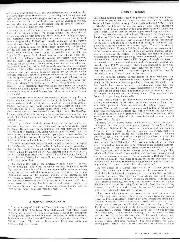
Cars in books, January 1970
THIS long-running feature has been primarily concerned with chance references to cars in the older books, but the thing must be catching, because I have received a copy of the…
CARRYING ON
This Nation is at war, and it is nobly carrying on. Judging by the traffic on our roads some seven weeks after the commencement of hostilities, the private motorist, too, is doing his and her best to carry on. It says a very great deal for the hold, pleasure motoring has on the British public that this should be the case, when blacking-out renders after-dark driving a trying occupation, when each car is only allowed a petrol ration equivalent to 200 miles operation per month, and when so many cars, taxed quarterly, could conveniently have been laid up on September 30th. We, as particularly enthusiastic motorists, are proud to witness this evident reluctance on the
part of ordinary folk to discontinue with their motoring, in spite of extremely trying conditions imposed by war-time regulations. We sincerely hope that they will not loose heart, and that 1940 will find them just as keen. For, casting aside selfish appreciation of deserted highways, the wholesale curtailment of private motoring would strike a very serious blow to the business and economic life of this country. This applies less to the motor manufacturers than to garages, repair shops, accessory and component Makers, and the countless associate trades which exist out of the public’s desire to motor. The hotel and catering trades, the cloth ing industry, and so many auxiliary businesses would likewise suffer, because they rely on unrestricted use of the motor-car either wholly or in part for continued prosper ity. At least the bigger manu
facturers are mostly coping with reasonable Government war material contracts, and many of the small car makers are doing likewise. It is logical to assume that a small quantity of new cars will still be sold, for export, to rich buyers at home well isolated from the horrors of war, and, so far as sports-cars
are concerned, to hyper-enthusiastic drivers who are quite calm about buying 1:2,000 racing-cars for limited use and who may now be expected to regard purchase of a new sports job in the same light. It is the associate businesses which will swell the unemployment roll in a startling manner if private
motoring comes to rest. Certainly, the outlook is not too bright. The mileage limitation of 200 a month apprOximately will put up running costs to an absurd figure. Motoring that fortnerly cost 3d. a mile will now absorb something like 1/3 a mile. A friend of ours, Aston Martin owner and 100 per cent, enthusiastic, confesses he will lay up the car at the end of the year, because he considers a ,f,15 tax out of proportion to his rationed
annual mileage of 1,800. Business motorists are apparently being rationed at 6,000 miles a yearMOTOR SPORT has been given nine supplementary coupons a month for an 8 h.p. car. We hope these rations may soon be adjusted more favourably. Then the black-out has resulted in a big increase in road accidents. We hope further lighting regulations will ease this additional penalty. Some quarters are of the opinion that the Government does not wish to encourage private motoring. Their existing war-restrictions have been estimated to represent a taxation loss of 54 millions. Neverthe less, the facts that the War Budget contained no increase in car taxation and that work commenced on new roads and highway repairs is to continue, are in our favour. So, remem bering that ordinary motoring is almost non-existant in Ger many, let us all attempt to carry on. After all, if five enthusiasts pool their resources, they can realise over 200 communal miles eacb week-end. If we can assist in forming inter-car parties we
shall be glad to do so.